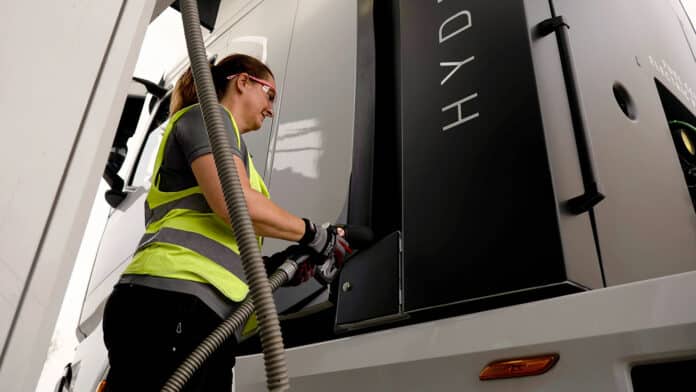E.ON and Nikola Corporation have collaborated with the goal to decarbonize heavy-duty trucking by combining advanced truck technology with service solutions and hydrogen infrastructure.
This partnership is expected to offer customers an integrated mobility solution to promote the use of hydrogen. Both parties have now signed a term sheet to underpin the collaboration and will be negotiating a definitive agreement to finalize the terms.
The joint venture intends to combine next-generation Class semi-truck technology with support solutions and a green and sustainable hydrogen infrastructure. As a result, the collaboration has the potential to transform the high-emission heavy-duty transport sector.
The joint venture intends to raise awareness about the advantages that hydrogen offers at cost parity or better than diesel based on the total cost of ownership. The plan is to make hydrogen available nationwide at stationary and mobile refueling points to ensure unrestricted green mobility.
The use of green hydrogen, which has a high energy density, offers several advantages in heavy-duty transport. A Fuel Cell Electric Vehicle (FCEV) has the potential to achieve a longer range without significantly increasing weight. Another viable solution for trucks is the Battery Electric Vehicle (BEV), which needs shorter distances and has predictable charging times. The coexistence of BEV and FCEV in the commercial vehicle sector is a realistic scenario.
“Nikola has a deep understanding of transport demands and will continue to develop cost-effective, fully sustainable solutions that involve our zero-emissions trucks and hydrogen infrastructure to our customers,” says Michael Lohscheller, President Nikola Corporation. “This joint venture is a critical element in transitioning the transport sector and aligns with E.ON’s expertise in energy networks and customer solutions to lead the European transport sector.”
The joint venture is expected to be finalized by the end of 2022 and will include the development of initial joint projects.
